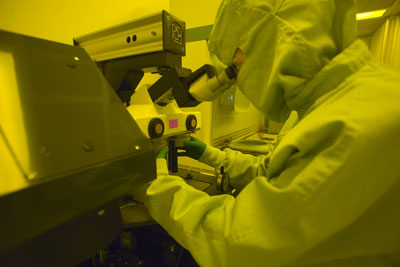| Nov 23, 2011 |
CIC microGUNE and Biodonostia test a new technique for evaluating intestinal diseases in patients
|
|
(Nanowerk News) The CIC microGUNE research centre and the Biodonostia Institute have recently started testing a new technique for assessing the severity of inflammatory intestinal diseases, such as Crohn's Disease, in patients at the Donostia Hospital.
|
|
This new technology, which has been developed jointly by the two centres, involves detection of the TNF-alpha protein, which is known to be a marker for numerous inflammatory diseases such as Crohn's Disease, rheumatoid arthritis and spondylitis.
|
 |
| CIC microGUNE and Biodonostia test a new technique for evaluating intestinal diseases in patients.
|
|
The excellent results obtained to date could lead to CIC microGUNE and Biodonostia patenting this technology as it could be used to detect markers for other diseases by making a few modifications.
|
|
In contrast to current methods for diagnosing Crohn's Disease, such as endoscopy, the TNF-alpha detection technique developed by CIC microGUNE and Biodonostia is essentially non-invasive as it only requires a small amount of blood.
|
|
Subsequent development of this technique is expected to lead to deposition of the blood sample on a microdevice incorporated into a credit card-sized support. This support will then be introduced into a reader, which will provide the diagnosis in only a few minutes. Furthermore, it has the advantage of being able to determine the severity of the disease much more accurately.
|

